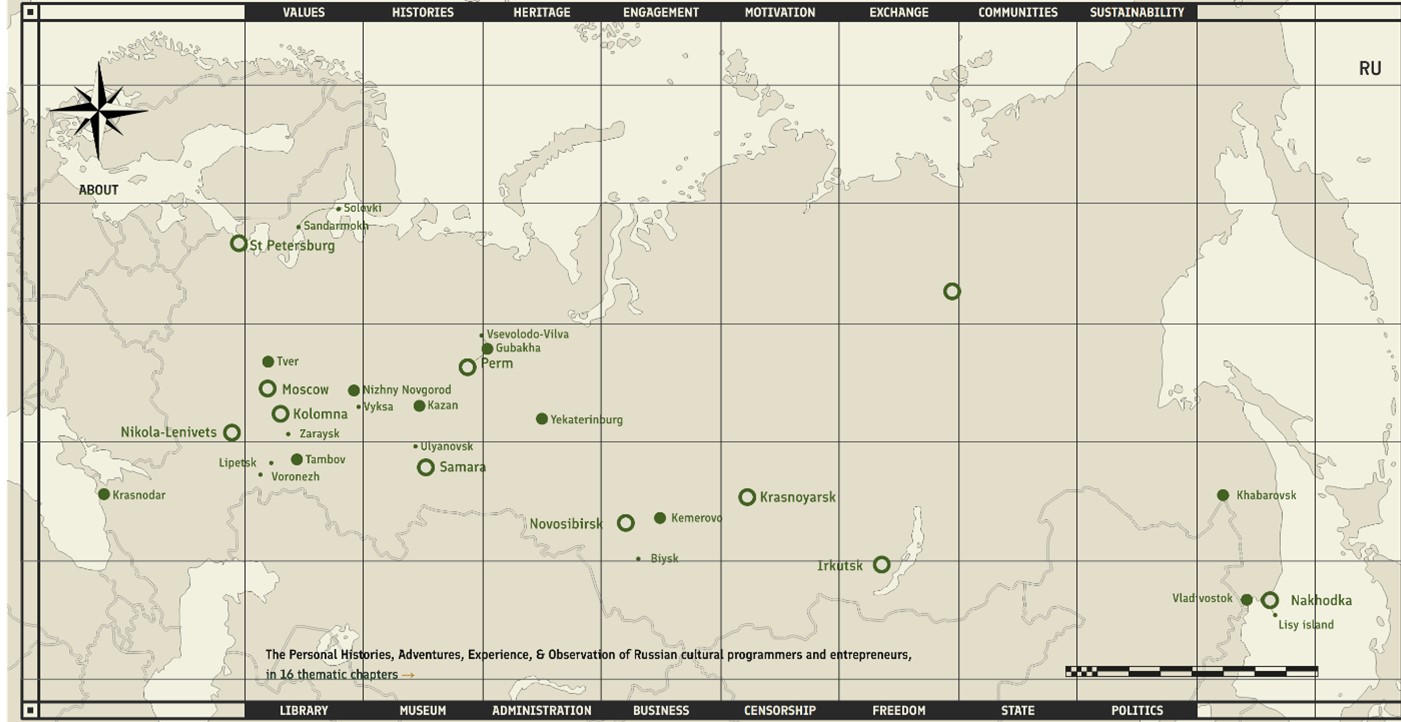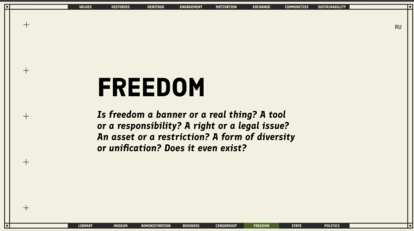Culture and Freedom in Russia
A Map of the Invisible City of Kitezh

The project, implemented with the support of FNF Russia, traces the hidden debate over freedom and enterprises that was still going on in the hyperregulated cultural sphere of Russia, among active people who were busy custom redesigning the intellectual and creative landscape. It is based on a series of interviews with cultural entrepreneurs in Russia, conducted by the project team in 2020-2022.
We soon realised that each and every one of the several dozens of conversations pivoted around a handful of key notions, of which freedom was the central theme: everyone was trying to carve out a free patch within the framework of institutional relations between the state and the citizens.
For many of the participants, these dialogues were the first chance of reflection in a long while, an effort of understanding and analysis of their condition. Others chose not to disclose their true stance, substituting the value-driven debate over basic freedoms with speculation on heritage policies and rejoicing in insider codes.

Russia is not represented on the international academic scene. Only a handful of articles get translated. Thus, we are seen as a country that needs to be taught the basics, starting from the ABC of creative industries. The researchers working at an international level are a very small group, there has been no time to expand it. In the Russian regions, there is an infestation of opportunists that produce Soviet-style word forms with absolutely no scientific background or serious research behind them, just a bare set of ideologisms. These articles are unreadable, and yet they are published in peer-reviewed magazines, ending up in science citation indexes where students may fall for them. Basic academic works are lacking, decent articles are hard to find, there are only sporadic presentations dealing with the trendy issues of creative industry methodologies. In the next few years, we shall probably be swept by the foamy wave of creative industry discourse.
Early in 2022, the cultural landscape the project team had been painting disappeared, went underwater just like Kitezh-grad, the Russian version of Atlantis. Hence the idea came up, to preserve this cultural landscape up to the tiniest detail for the next generations of researchers. The online version of the project was created in hope that the scholars of the not so remote future will be able to use the references outlined in this study in order to build bridges linking the world that is gone to the one that is still in development, to design a more sustainable space for a new, meaningful and honest dialogue.
There is hardly any subjectivity. They would read the report, take out the name of the author and present it. The Ministry of Culture would then make a note of it: "We are making a comprehensive list, nothing to worry about!" But they would not assign the task to anyone capable of meaningful efforts. There are no authors at any level. We have unexpectedly found ourselves involved with the tourism market. It offers a fascinating experience of trying to link the cultural debate to down-to-earth economic issues. Everyone keeps going on about creating content. But managers do not create content! This is what authors do. The author, the artist, the curator must have a different profile and a higher status.
